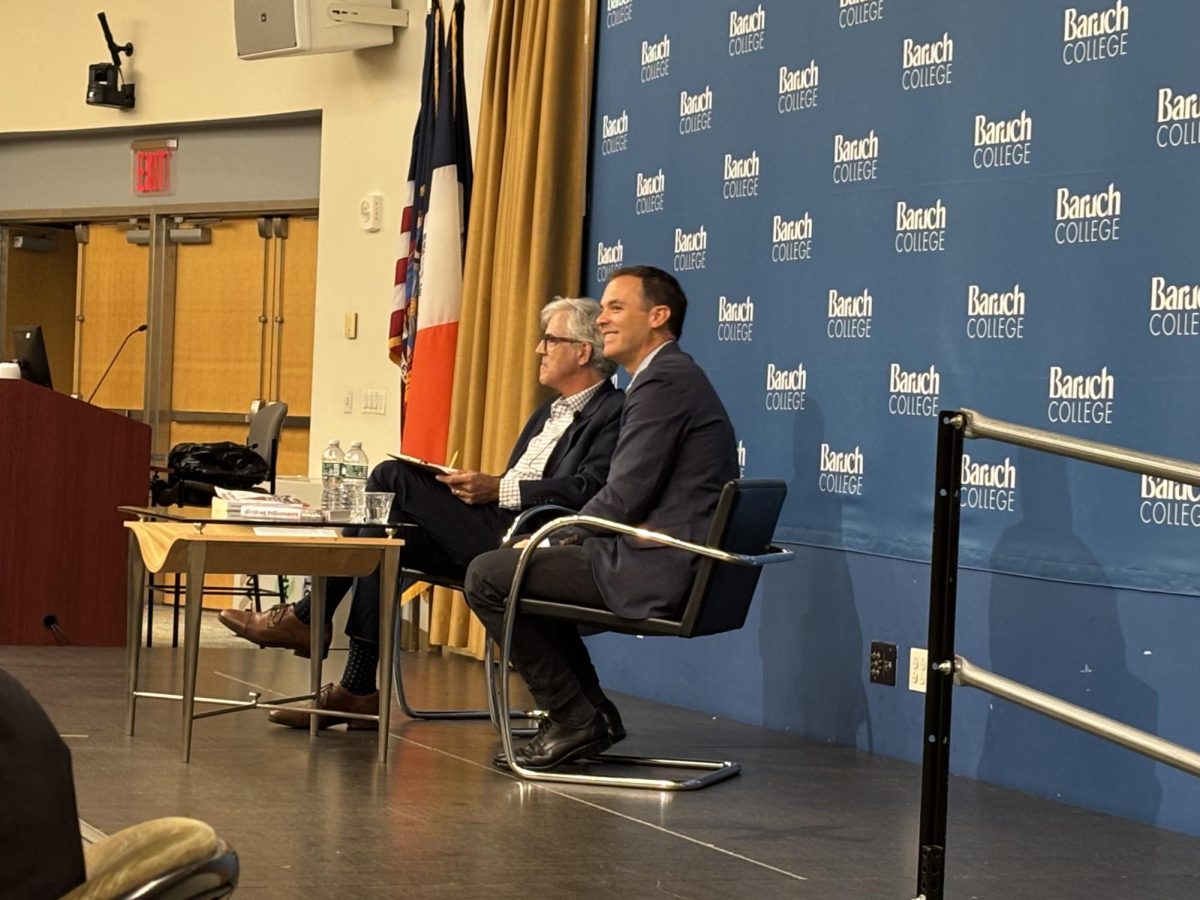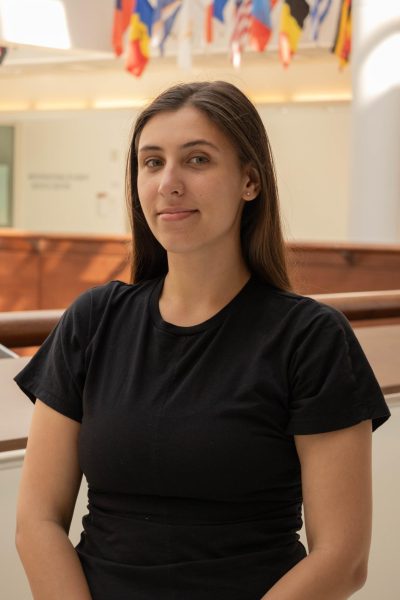New York Times reporter David Gelles came to Baruch on Sept. 11 to talk about how the owner of Patagonia, a company known for making outdoor gear and climbing equipment, built a $3 billion enterprise, only to give it all away.
Gelles’ book, “Dirtbag Billionaire,” discusses the life of Patagonia founder Yvon Chouinard – whom Gelles described as “unconventional” – hated billionaires, calling them “grease balls,” only to become one.
Gelles was a business reporter at The New York Times, and met Chouinard in 2013 when he was interviewing him for a story. Gelles would continue to write about the company years after.
“At every turn, they were making sort of a different set of decisions than most of their peers, than most of the other companies in corporate America,” Gelles said during the interview hosted by the Baruch Accounting Society and Robert Zicklin Center for Corporate Integrity.
Chouinard was homeless for parts of his young adulthood, and often spent his time in nature and enjoying the outdoors. One day, he became a rock climber and realized that he needed better tools than those currently on the market.
So, he made them.
With serious demand, he started a booming business from the back of his car trunk.
Soon after, he went into the clothing business and never compromised on quality.
There was this “emphasis on simplicity, this deep appreciation of quality, in a really holistic sense of the word,” Gelles said. Chouinard ensured he was selling products that were exceptional, which meant he was not afraid of racking up the price.
In 1979, he stepped away from the responsibility of day-to-day operations. He was not only a businessman but also a prominent speaker on political issues.
“He made it known that he was one of these business leaders who was unafraid to say what he thought about the issues of the day,” Gelles said.
With the huge success of Patagonia, Chouinard decided to give it all away in 2022. Instead of being bought out or giving the company away, Chouinard donated 2% of the voting shares worth $3 billion, into a Purpose Trust, which gave the voting shares to for-profit companies.
The 98% of the remaining shares, which had no voting rights, were donated to different nonprofit organizations. This allowed the money to be donated to political campaigns and causes, and none of it would need to be reported. After that, Chouinard went from having billions to essentially having nothing.
“You think about this man who literally had billions of dollars at his fingertips, and the way he wants to spend his time is in the simplest way possible. He doesn’t own a cell phone, there’s no social media accounts, he doesn’t have an email address,” Gelles said. “He is in the moment, and it was an extraordinary reporting experience.”









